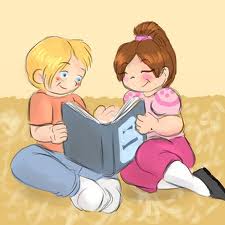In case you ever loved reading books as a youngster, you must know that the literary world has completely changed for this age group. The adolescent category of books didn’t even exist around 30 years ago. Currently, there are many different choices among readers who don’t want to focus on traditional books for older children, while avoiding completely adult books.
Inspite of so many choices, there’s been a crisis among readers. Children tend to lose their reading habit when they enter high school. This should not be ignored. There are some effective strategies to make sure this habit does not become permanent.
Basics of Reading
When a kid is in elementary school, reading is all about fun. Parents and schools focus on building some sense of excitement regarding books. Reading aloud in the class and organizing book fairs are some good ways to encourage a child and give him an opportunity to explore the literary world. However, something changes when a child enters middle school.
Anne Reeves, Professor at Susquehanna University, has been doing some research in adolescent literature. She has covered many case studies and authored books on this issue. According to her, most of her students were avid readers when they were young, but stopped reading as they grew older. Most of the kids didn’t enjoy reading anymore. According to Reeves, when students enter middle schools, they don’t have the freedom to read something they choose. Most of their reading is related to subjects in which they may not have much interest. Therefore, they choose other options to spend their time. Hanging out with friends, video games, sports and clubbing becomes a priority, and books just take a backstep.
Steve Alten, Young-Adult author, also agrees with Reeves. He believes that when children get closer to high school, they are required to read classic novels or other subject books which may not be interesting or relevant to them. A teenager does not usually want to read 100 year old novels. Thus, reading does not seem like fun any longer.
Reeves believes that there should be a separate focus on curriculum for subject books and classic novels. They should not be a part of the mainstream reading curriculum. Teachers should be clear about the basic purpose of reading. They need to understand that reading helps young adults experience different lives, and understand different characters. When children have to read something in which they’re not interested, literature seems boring to them.
While reading needs to be enjoyable entertaining, the act of reading offers more benefits than just entertainment. In order to create lifelong readers, schools need to focus on teaching literature as projects that young minds appreciate. According to Steve Alten, the act of reading can be used to familiarize a child with the way words are spelled and grouped. It can also increase vocabulary. The act of reading is an ongoing process. It matures with the child’s age. Most educators don’t realize it, but reading can also be beneficial during state exams. Most of them require exceptional reading skills.
How to Make Reading a Lifelong Hobby for Your Child?
Parents can’t do a lot of things about the curriculum in schools. Schools are not willing to make any changes to their curriculum. However, there are some things parents can do to make sure their children like reading and makes it a lifelong hobby. It is very important to focus on what children like to read. You should encourage them to explore more books, genres and authors. When Steve Alten’s first book was a hit among teenage readers, he received numerous emails from fans who told him they were excited to reach his book.
Alten also founded Adopt an Author, which aims to generate interest among teenagers about reading books. Adopt an Author also allows kids to directly contact their favorite authors. Even teachers can find resources on the site to build curriculum’s while taking into account the best selling young-adult books today.
The International Reading Association can also be a good source to get teenagers interested in reading books. Since 1989, the International Reading Association uses feedback from teenage readers every year to develop the Young Adults Choices Booklist. This is what most teenagers like, and it is likely that your child will like it too.
Most importantly, it is extremely important to continuously evaluate a child’ s reading level. You need to gather more information and knowledge about literature catering to their age and abilities. Cathy Denman, Chairperson of the Young Adult Choices Committee, believes that a young child may be an advanced reader to choose a book for teenagers. However, this may not be a good choice for your child’s overall social development.
For such kids, she believes classic literature aimed at teenagers of the past can be a good choice. Such books usually focus on more mature themes with challenging vocabulary. According to Cathy, the choice of a book depends on the child and his/her needs. However, most young-adult books are suitable for 7-12 grades.
